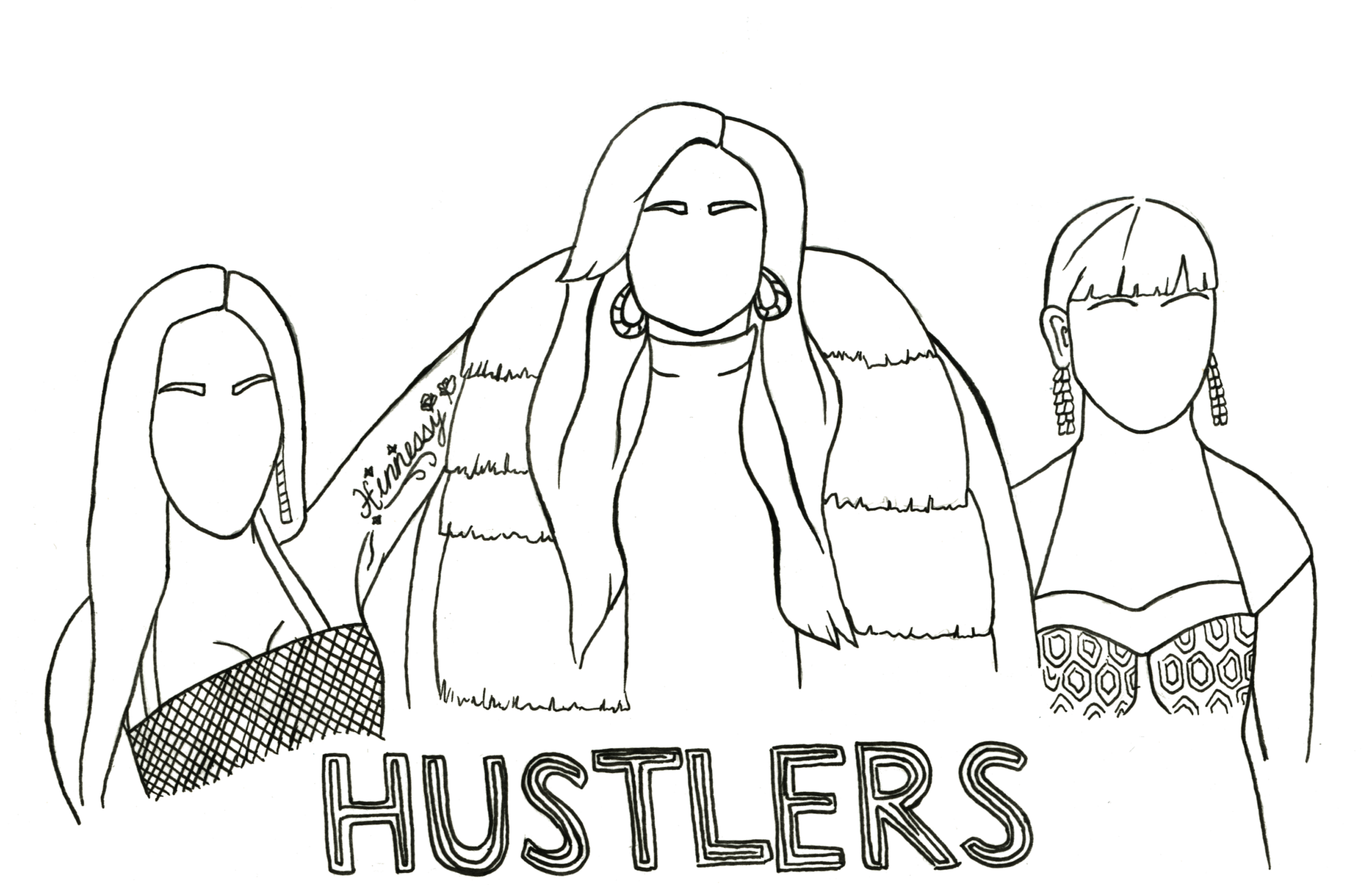
As the wise leader of our nation once said, “A diva is a female version of a hustla.” Beyoncé is the very pinnacle of a diva, of a hustler. Unlike Beyoncé, the characters in “Hustlers” — a 2019 American crime drama written and directed by Lorene Scafaria — work silently in the trenches to get the job done, yet in the process they are not respected. These women, as the film shows, are strippers.
“Based on a true story” was glaring at us on the screen, when all of a sudden a narrator’s voice welcomes us into the story of female strippers lavishly adorned with everything, it seemed, inside the cave of Disney’s Aladdin — gems in silver and red, bright nightclub lights, and glitter.
Right from the start, the ideas of control, power and beauty were introduced. The narrator, Ramona — played by Jennifer Lopez — asserts that she’s in control of what she says and does. It’s her way or the highway. She introduces us to the real hustlers of New York City, the women who perform what are seen as degrading acts, but truthfully, according to Ramona, are in control of their bodies and wallets.
The story of Ramona and Destiny, played by Constance Wu, is told in the frame of a timeline that tracks the shifting complexities, relationships, hierarchies and stories of these women.
We shift from 2007, when Wall Street is booming and club clients are abundant, to 2014 when Destiny is being questioned by a journalist from Brown played by Julia Stiles—whom I missed since her role in “10 Things I Hate About You.” After the 2008 financial crisis, the dancers have to resort to drugging and robbing their clients, and eventually the FBI catches on.
We follow Destiny through her relationship with Ramona, her grandma, her chosen family of dancers and criminals, her child and herself. We also follow the power structures and hierarchies between the dancers and their male clients, bosses and partners. But the white Wall Street guys end up being the least of Destiny’s problems. Her dependence on Ramona is what is holding her back. Are we feminists — women seeking equality for all, freedom from oppressive institutions, and control over ourselves and our choices — holding ourselves back? Are we our own enemies?
This is a film about control. Destiny has recurring nightmares about being unable to reach the driver’s seat. She screams and pushes, trying to grab the wheel, but some force stops her. When she finally reaches the driver’s seat the car crashes.
Destiny identifies at the beginning of her interview with the journalist that Ramona is “always in control.” From the first scene where Ramona takes Destiny under her wing — or, should I say, her mink coat — to the luxurious scene of Christmas dinner when Ramona goes as far as to gift Destiny her own mink coat, we see a power dynamic between Ramona and her apprentice that is suffocating, unhealthy, and unequal. Destiny displays her dependence on Ramona’s affection and validation when she pesters the journalist about what Ramona said about her in her own interview.
Do you have a Ramona in your life?
Needless to say, this cast is on another level. That the cast is almost entirely made up of women of color is empowering in and of itself, especially because these women are portrayed as powerful and beautiful, each in her own way.
Right now I’m in an English seminar called “Beautiful People.” We looked at Naomi Wolf’s The Beauty Myth and I can’t help but see the connections between Wolf’s rhetoric about female empowerment to “Hustlers.” Wolf’s acerbic message is as inviting as Ramona’s character who, throughout the film, acts as a motherly figure for the other dancers.
Power. Control. Hierarchies. Words we often associate with government, with studies of global affairs in the Middle East, and regimes. Here, these words are applied to women who are navigating what the American Dream means for them and what having control of their own lives means.
At the end of the film, Ramona says, “Some people dance. Some people throw cash.” These words haunt me still. Has a truer statement ever been said? Are you a jester, a dancer? Do you hypnotize others into dancing your dance and believing your words? Or, perhaps, are you being controlled by a dancer? Are you a leader or a follower?
In short, are you in control? Are you a hustler?
Larrisa Jimenez | larrisa.jimenez@yale.edu .







